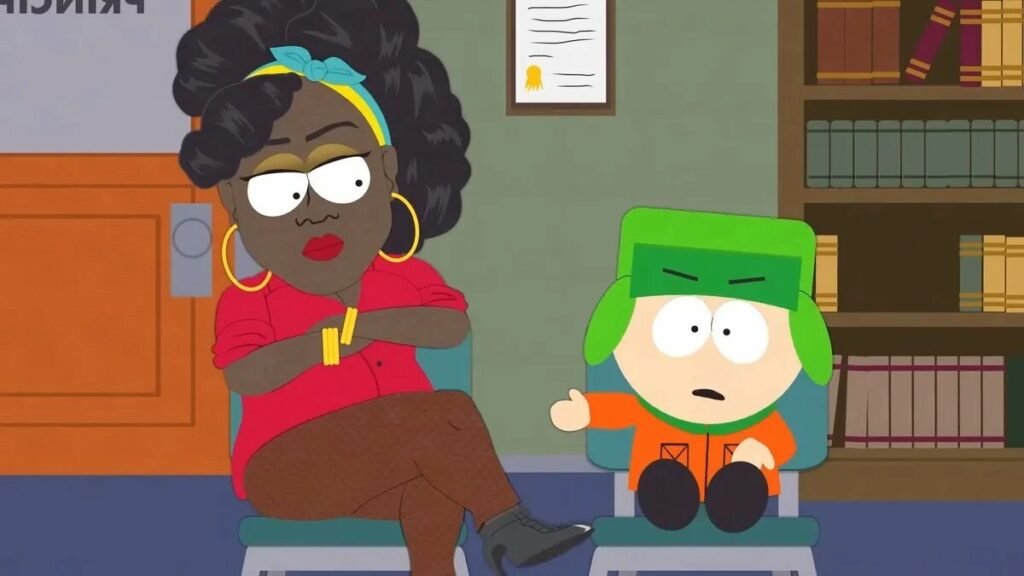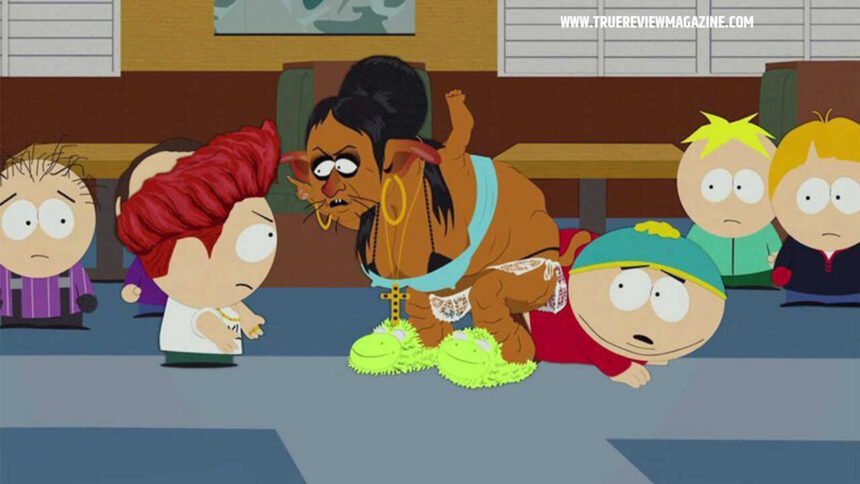In their latest special, “Joining The Panderverse,” the creative duo of Matt Stone and Trey Parker from South Park exhibit their trademark wit while delving into the complexities of a highly debated cultural landscape.
This 47-minute episode offers a discerning critique of Disney’s strategies, shedding light on what some perceive as a lack of genuine commitment to diversity, an overreliance on the multiverse concept, and more. Simultaneously, the show doesn’t hesitate to playfully skewer the opposite end of the spectrum, taking aim at critics of “woke” culture and diversity efforts who often express their discontent.
What sets South Park apart is its ability to satirize all sides of a debate, a feature that has long contributed to its enduring popularity. For many, including myself, who have been dedicated viewers since the show’s inception in 1997, it has played a significant role in shaping our intellectual perspectives. South Park possesses the remarkable talent of highlighting the flaws and merits of both sides of any divisive issue.

An illustrative example of this balanced approach is seen in their parody of Mormonism, where the episode humorously satirizes the religion but concludes with the Mormon child offering a thoughtful critique of Stan, revealing the show’s subtlety and complexity. South Park takes on everyone but not always with equal measure.
In “Joining The Panderverse,” the primary target of satire is Disney. The narrative unfolds as a portal opens through the Panderstone, setting off a series of peculiar events. One particularly amusing scenario involves Cartman experiencing dreams of being a diverse woman in an alternate universe where his friends have transformed into diverse women who frequently critique the patriarchy. Eventually, Cartman is swapped with his counterpart from this universe. Upon returning to South Park, the Social Justice Principal supports Cartman’s transformation into a black woman, framing objections from Stan, Kyle, and Kenny as racist and sexist. This situation leaves the kids baffled.

The diverse Cartman character is portrayed humorously, replete with clever references to pop culture, such as Baldur’s Gate 3 and Miles Morales. When Kyle highlights that Morales is a well-developed character with his own distinct story and motivations, it underscores the show’s stance on the importance of genuine diversity over superficial race or gender swapping.
Cartman’s journey leads him to an alternate universe where he encounters Kathleen Kennedy. Here, it’s revealed that Cartman’s incessant hate mail prompted Kennedy to resort to the Panderstone, resulting in increasingly pandering and unsuccessful film projects. Their pursuit of diversity leads to the creation of a hybrid version of Cartman and Kennedy that assumes control of Disney, resulting in a decline in the quality of their productions.

The key takeaway here is the detrimental impact of radicalization on either side of a debate. While diversity is undoubtedly important, merely substituting races without crafting unique characters and narratives can foster resentment and uninspiring stories. Conversely, incessant criticism of “woke” culture can also be counterproductive, as Cartman realizes when he offers an apology to Kennedy. South Park acknowledges the complexity of these issues, showcasing its ability to navigate nuanced cultural conflicts.
In summary, “Joining The Panderverse” doesn’t deliver a straightforward takedown of Disney or launch a scathing attack on Kennedy; instead, it paints her as a sympathetic character in the end. This nuanced approach is what makes South Park effective; it delivers satire and humor while recognizing the intricacies of these issues and the shared responsibility of individuals on all sides. This mirrors the nature of culture wars, where everyone has a role to play.
The episode’s B-plot follows Randy as he grapples with his lack of handyman skills and the growing challenge of finding competent professionals. It humorously explores how contractors are amassing wealth while traditional professionals are being replaced by AI. Two hillbilly handymen playfully mimic Elon Musk and Mark Zuckerberg, engaging in amusing banter over their wealth and space exploration efforts.
Although Randy’s storyline offers humor, some viewers may find it slightly prolonged, but the recurring gag of “I’m working on it, Sharron!” contributes to the episode’s overall comedic charm.
Read more: https://truereviewmagazine.com/










